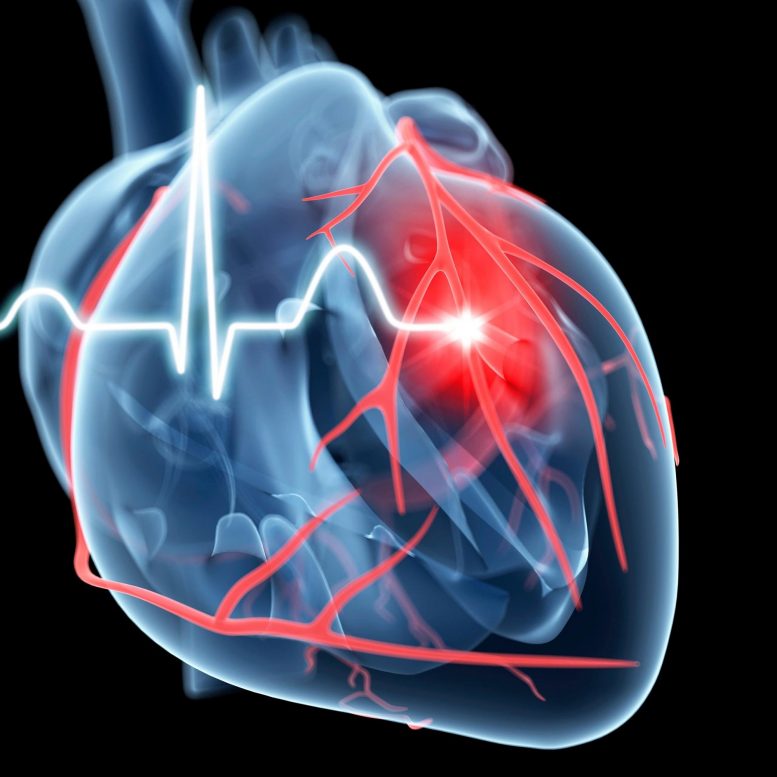
The results pave the way for a whole new field of targeted therapies for those at risk of coronary heart disease.
The most critical genes that cause coronary heart disease and trigger heart attacks have been identified in a major new study.
The research, from a team at the Victor Chang Cardiac Research Institute, the Icahn School of Medicine at New York’s Mount Sinai, and other sites in Europe and the USA, has been published in the journal Circulation: Genomic and Precision Medicine.
The results pave the way for a whole new field of targeted therapies for those at risk of coronary heart disease – the world’s biggest killer.
Three Major Breakthroughs in Coronary Research
Executive Director of the Victor Chang Cardiac Research Institute, Professor Jason Kovacic, was lead author on the paper and says the study achieved three major breakthroughs, all of which were of key importance in the fight against heart disease.
“Firstly, we have now more accurately defined the precise genes that are likely to cause coronary heart disease. Second, we’ve identified exactly where in the body the main effect of those genes is – it might be in the heart arteries themselves that directly cause blockages, or perhaps the effect is in the liver to increase cholesterol levels, or in the blood to change inflammation,” adds Professor Kovacic.
“The third major achievement was to rank those genes – 162 in total – in order of priority for causing coronary heart disease.
Identifying the Top Genes Linked to Heart Attacks
“Some of the top genes identified on this list have never really been studied in the context of heart attacks before. To find these new important genes is really exciting but also a real challenge – as no one yet knows exactly how many of them cause coronary heart disease.”
Six hundred patients who had coronary heart disease and another 150 without coronary heart disease were included in the study. All underwent open chest surgery for coronary heart artery bypass surgery or other medically indicated reasons. The team used Mount Sinai’s supercomputer – called “Minerva” – to crunch the numbers, analyze data and collate information from thousands of genes.
Professor Kovacic hopes the findings will invigorate research in the area and will lead to a whole new field of critical work related to heart attacks.
Validating PHACTR1: A Key Gene in Vascular Disease
Professor Kovacic says: “This knowledge will allow us to go after these really critical genes that cause heart attacks, as we now know just how highly-deserving they are of immediate in-depth study to understand exactly how they cause coronary heart disease and if they might be promising drug targets for patients.
“Another important aspect of this study was that one of our previously suspected top genes – PHACTR1 – was validated as being among the top two genes for causing coronary heart disease. We are very actively studying PHACTR1 in my lab as we know it causes not only coronary heart disease but also a whole range of other vascular diseases including migraine, fibromuscular dysplasia and spontaneous coronary artery dissection.
“However, even though it is potentially the single most important gene for causing vascular disease, scientists around the world have little idea of how PHACTR1 works – and we are determined to fix that.”
Yet another benefit to patients may be improved genetic testing.
“The current genetic tests that we have to screen for people at risk of coronary heart disease look at hundreds, if not thousands of genes. At present they aren’t particularly accurate, and mainly for this reason they are not being used routinely in a clinical setting,” says Professor Kovacic.
“This refined and prioritised gene list we published in this study opens up many new possibilities in terms of more accurate genetic testing, as well as better understanding what causes heart attack, and developing targeted therapies for many of the new gene targets we have found.
“As a cardiologist myself, that’s incredibly exciting and could eventually make a huge impact on my patients’ lives.
“We are especially grateful to support for this ongoing research from NSW Health and the Bourne Foundation,” says Professor Kovacic.
Reference: “Integrative Prioritization of Causal Genes for Coronary Artery Disease” by Ke Hao, Raili Ermel, Katyayani Sukhavasi, Haoxiang Cheng, Lijiang Ma, Ling Li, Letizia Amadori, Simon Koplev, Oscar Franzén, Valentina d’Escamard, Nirupama Chandel, Kathryn Wolhuter, Nicole S. Bryce, Vamsidhar R.M. Venkata, Clint L. Miller, Arno Ruusalepp, Heribert Schunkert, Johan L.M. Björkegren and Jason C. Kovacic, 28 December 2021, Circulation: Genomic and Precision Medicine.
DOI: 10.1161/CIRCGEN.121.003365
Never miss a breakthrough: Join the SciTechDaily newsletter.